Based in the Peak District, Nicholas Holt is a photographer with a passion for lesser-trodden parts of the world and his images celebrate their wildness, natural beauty and traditional cultures. Here, he shares some of his favourite encounters and experiences from his time on the road.
Camels at a watering hole
In January 2020 I crossed Sudan’s Bayuda Desert with a small team of westerners and Bedouin guides. Our arrival at Jakdal Wells – a muddy-looking watering hole surrounded by a natural amphitheatre of rock – marked the halfway point of our journey, and we stopped as Belah, our chief guide, took the camels to drink from the pool.
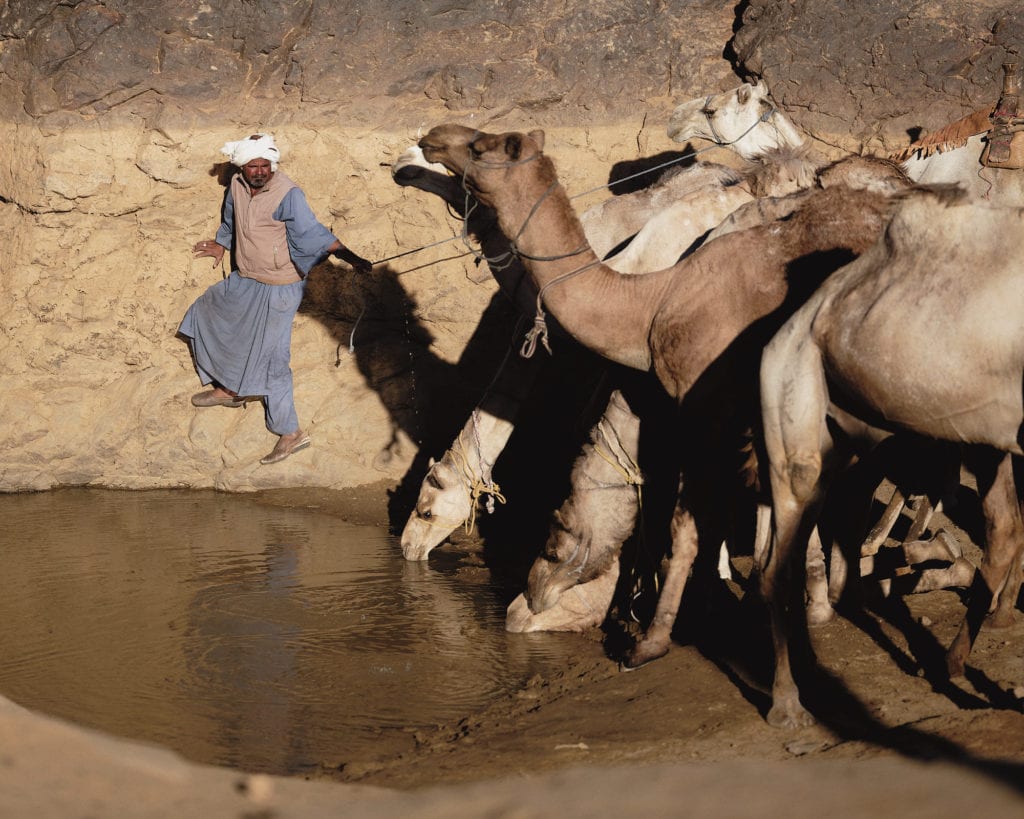
Not a drop had passed their lips for five days, but to our astonishment they took only a few sips of water and then wandered off. Some did not drink at all. ‘It’s winter,’ Bela explained, ‘They are not thirsty.’
Encounter in Khiva
The ancient UNESCO World Heritage city of Khiva in Uzbekistan is justifiably popular with tourists. Set out to explore at peak times and you can find yourself among a sea of selfie sticks and package tour groups, but get up early and there is magic to be found in the labyrinth of narrow mud-walled alleyways.
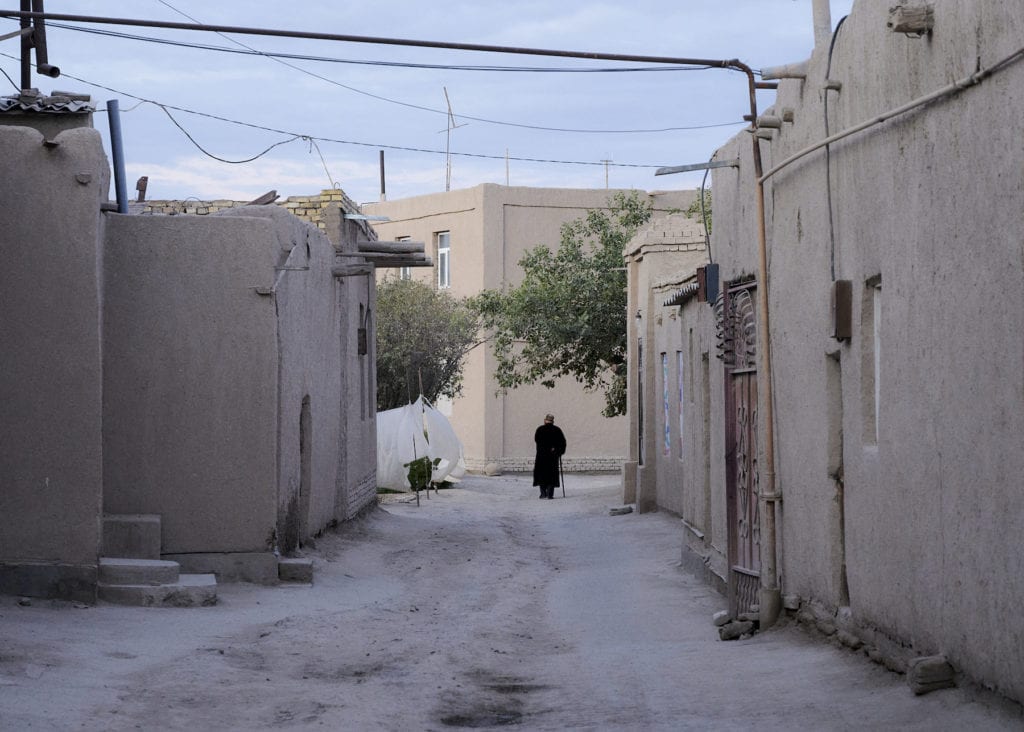
On one such occasion I met Ansar, an elderly resident of the city on his early morning walk. We chatted about Khiva and the shirkovok (pumpkin and rice milk soup) that he was going to have for breakfast. As he wandered back home, I took this photograph as a reminder of a charming encounter in an ancient city.
Crossing the dunes
This photograph is my ‘Wilfred Thesiger moment’ from our crossing of Sudan’s Bayuda Desert. The events leading up to this image of serenity are worth recounting: one of my team-mates fell unceremoniously from his camel when his saddle slipped.
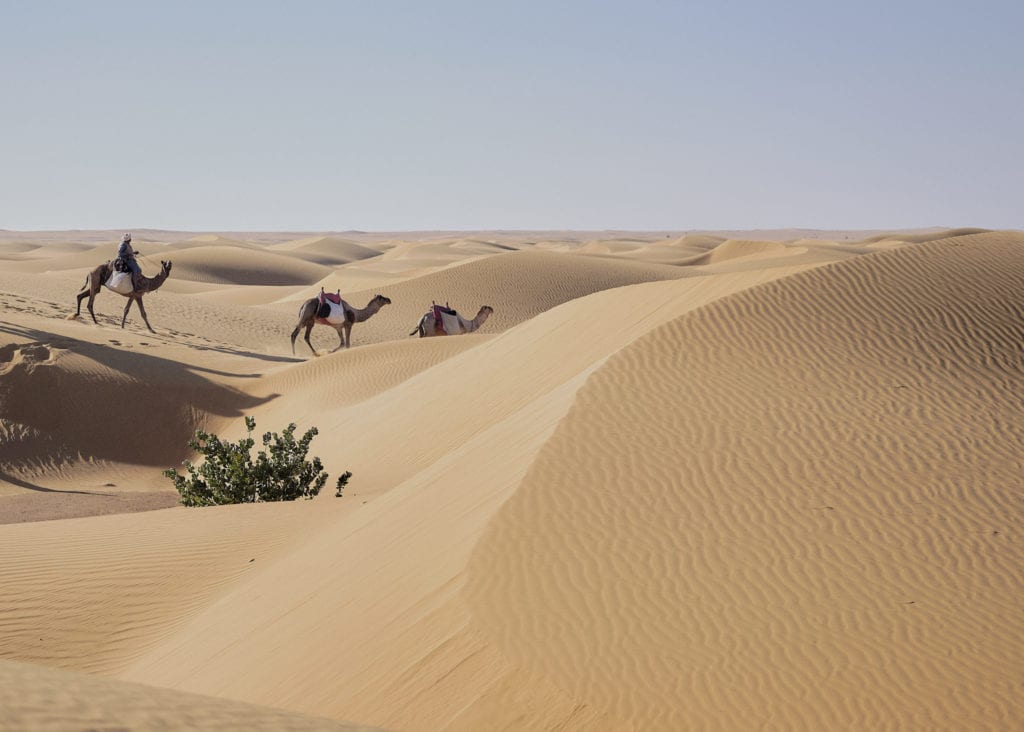
Meanwhile, my camel led me into a dead-end and refused to budge. I dismounted and sprinted up a dune – camera in hand – just in time to capture this scene. Writing this anecdote during the lockdown on a rainy November day in England, I’m glad I did.
Tibetan treasure
‘Would you like to visit an important stupa that no westerner has ever seen before?” asks Tashi. My excitable guide already knows my answer and is just as enthusiastic as me at this prospect.
He starts the Chevrolet, and we head down the red-dirt track towards the hills of Nangchen County. After three hours of tortuous driving along pot-holed roads, we arrive at our prize: an impressive stupa nestled among green fairy-tale hills.
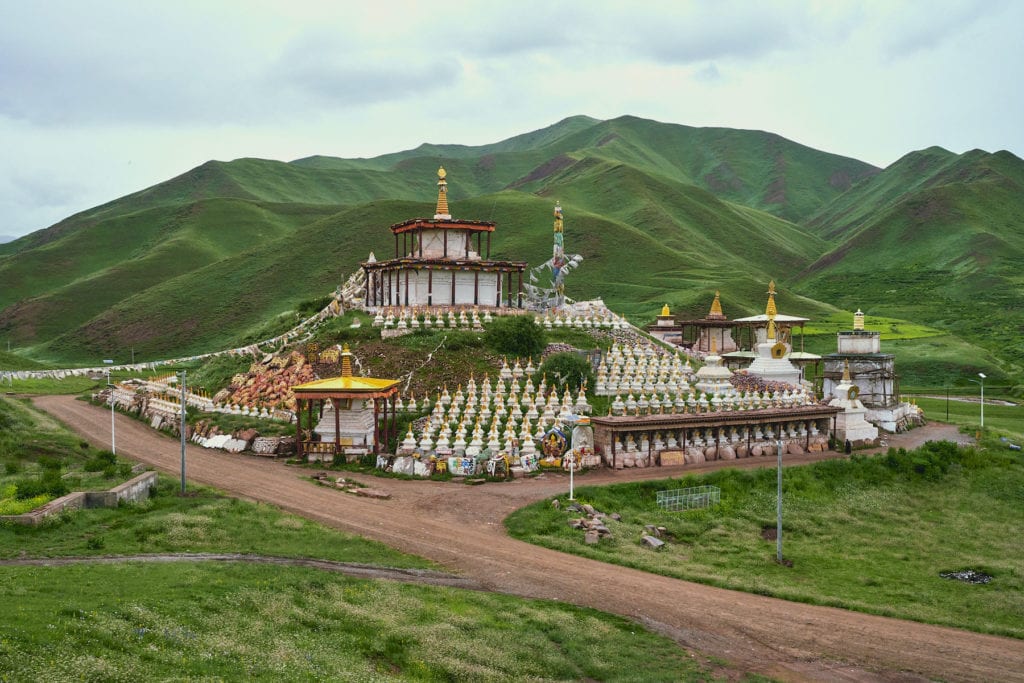
Dhokam Choten Karchung Stupa (and much of Nangchen County) is the Tibet of my imagination, and I pause for a while to take it in. We watch a man performing his kora (or circumambulation of the stupa) on a red motorbike, before making our own walking kora and calling at a nearby nomad’s tent for lunch. Another fascinating day in gloriously ‘un-Googleable’ Nangchen County.
Meeting with a nomad
A shape appears on the horizon, flickering in the desert heat. As it draws near, I realise it is a camel and rider. I feel like I’m in that iconic scene from Lawrence of Arabia. When the rider finally reaches us, he shouts ‘As-salamu alaykum’ (‘peace be upon you’) and leaps straight from his saddle on to the desert floor.
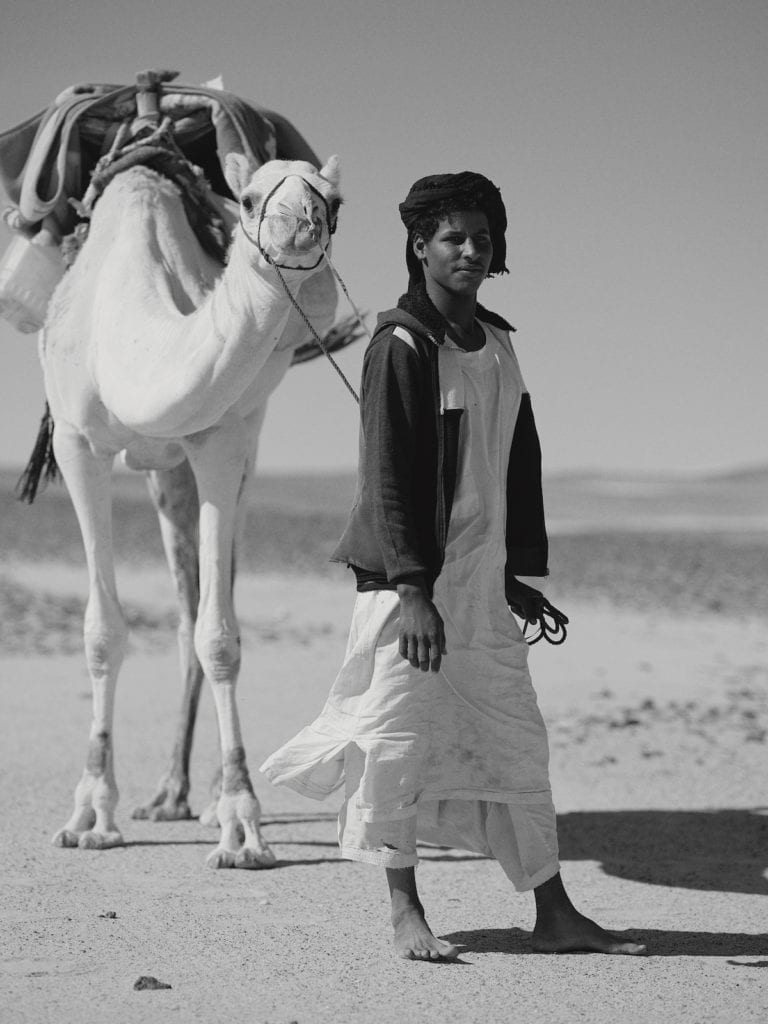
He strides across to our group; we smile and shake hands. He is a young nomad and is surprised to see us. I notice he is wearing no shoes; I motion to my camera and ask him for a photograph. He is happy to oblige, assuming a graceful pose by his resplendent pale camel. I give him a couple of cereal bars as a gift, and he disappears back into the emptiness from which he came.
A desert oasis
Bela and Qatar take tea at an oasis after a day guiding our team of ‘Kawajas’ (foreigners) across Sudan’s Bayuda Desert.
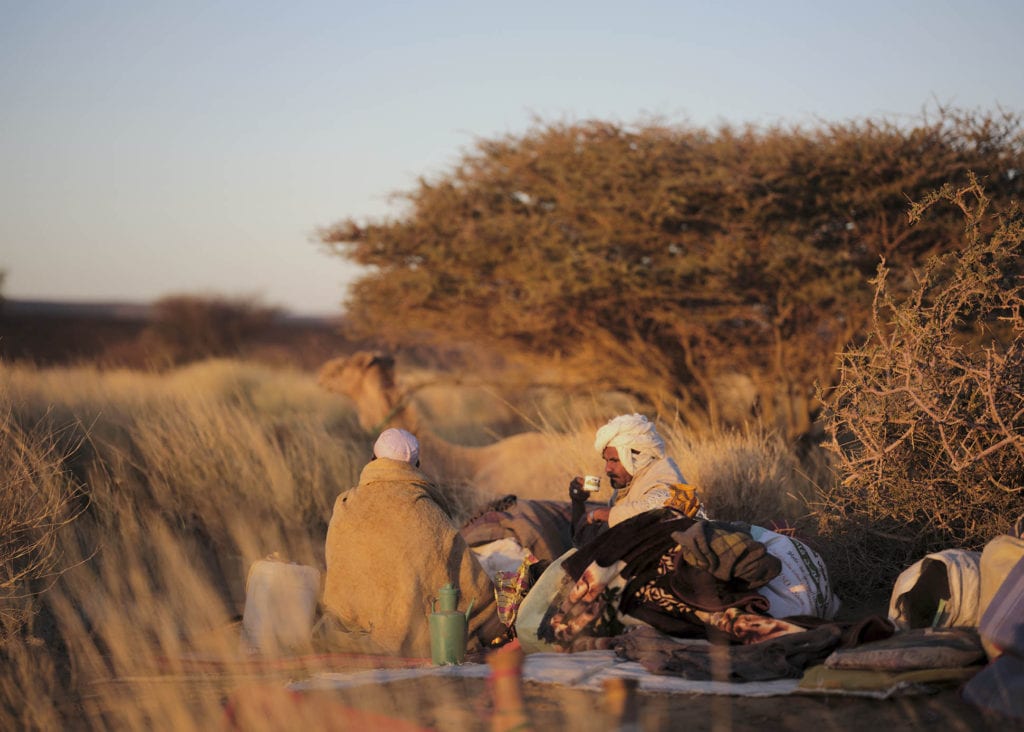
The 300km journey used an old Bedouin trading route and took us 10 days on foot and by camel. Our guides used only the sun to navigate and never put a foot wrong.
The great debate
Although modernity is creeping in, much of Nangchen County remains under-developed. This area is rich in Tibetan history and has one of the highest percentages of monks in Tibet. Many esteemed Lamas come from this region.
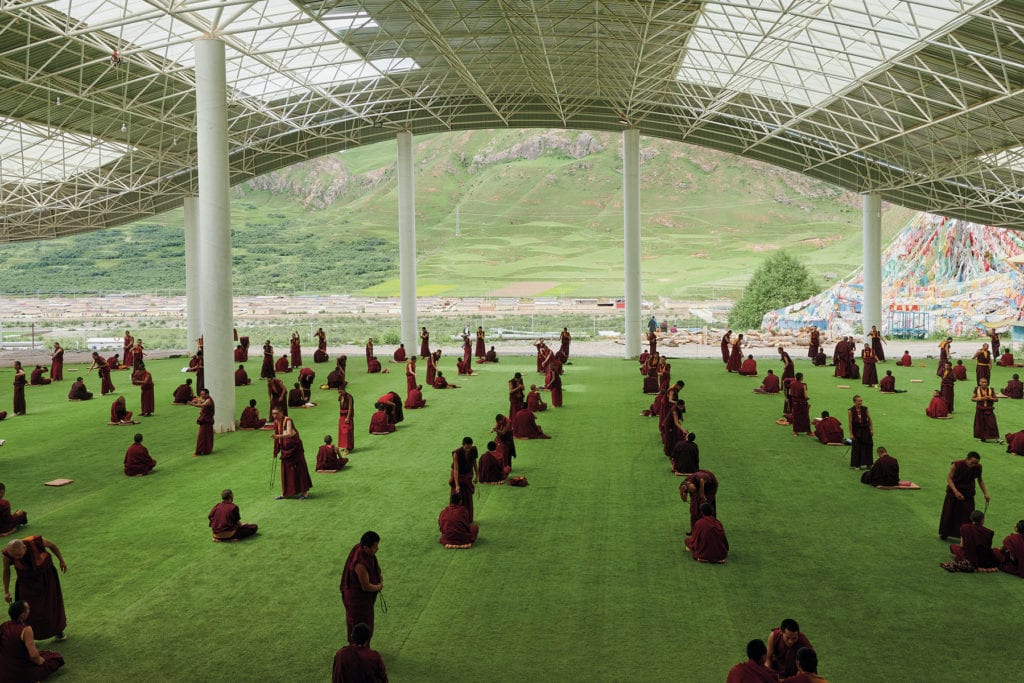
At Warka Monastery, we witnessed the ancient Buddhist practice of debating taking place under an all-weather stadium. This new construction is the size of a football pitch and sits alongside the old temple. The thin evening air is full of loud statements, hand-clapping, and extravagant gestures as the monks challenge each other’s perceptions.
Portrait at the Sufi Ceremony
The Sufi Ceremony takes place every Friday afternoon at the Hamed el Nil cemetery in Omdurman, near Khartoum, Sudan. It’s quite a spectacle to see the dancers whip themselves up into a frenzy in front of a crowd of onlookers.
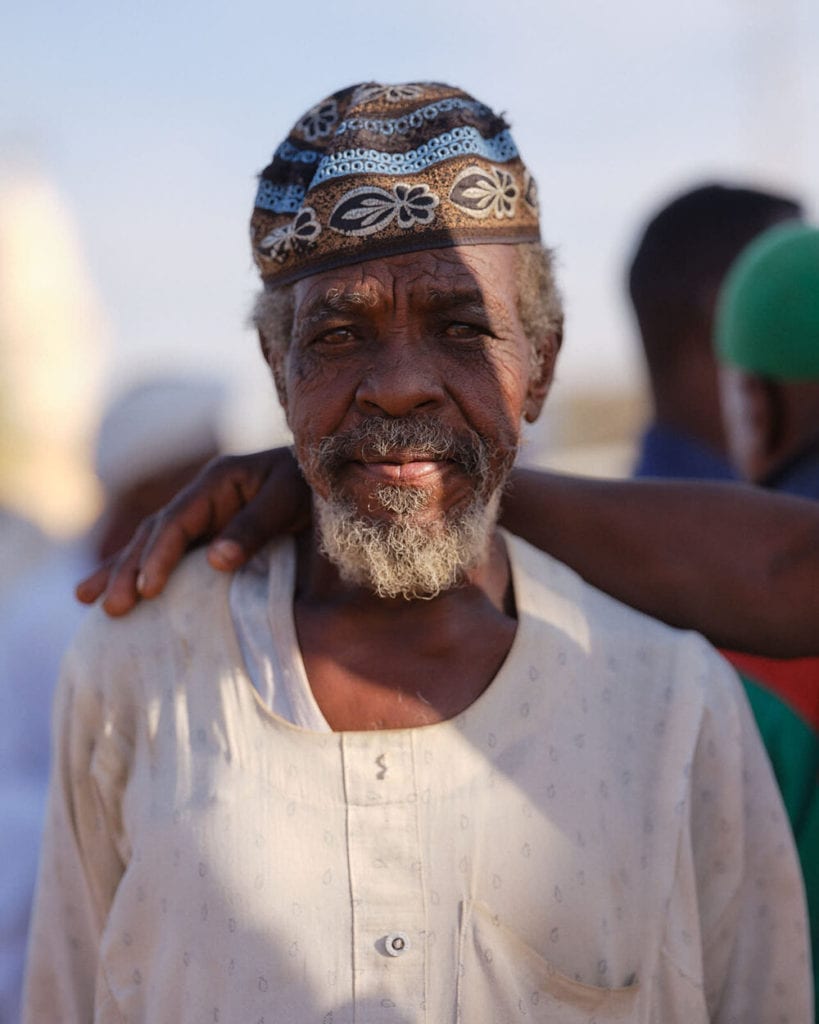
As I was watching some curious locals came over to greet me and practise their English; I in turn practised my (bad) Arabic. I made a series of portraits: people in Sudan are a joy to photograph.
A light for the world
A solitary light illuminates the night at remote Gar Monastery in Nangchen county, Tibet. The monastery sits in a spectacular setting perched on the side of a mountain.
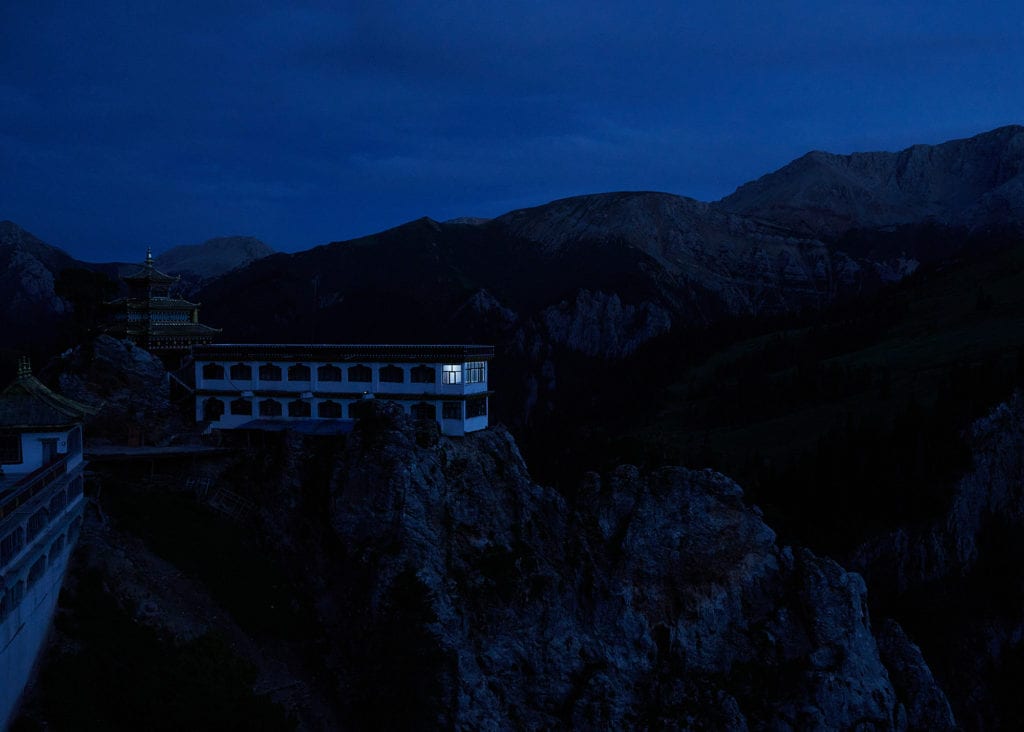
Solar-powered speakers play Buddhist mantras in the gardens above and deer freely wander the monastery grounds: as peaceful a place as can be imagined.
More information
Head to Nicholas’s website to purchase one of his limited-edition prints.